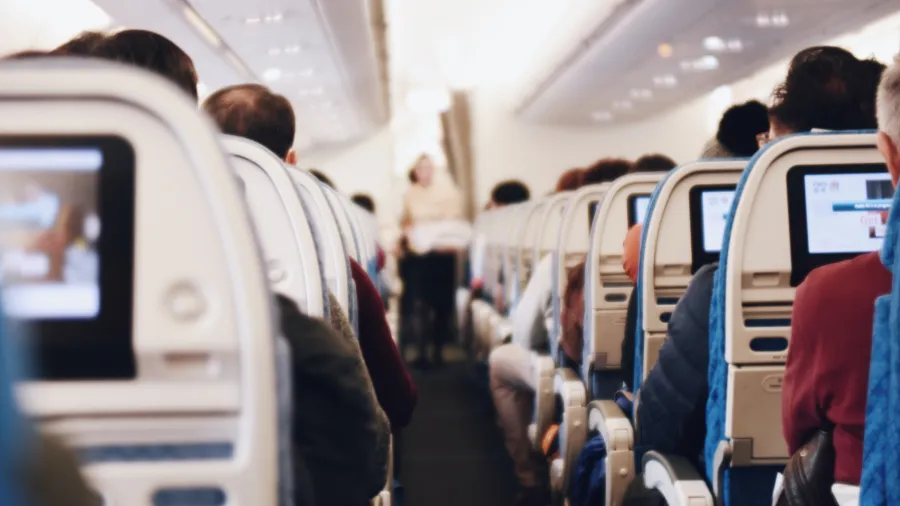
New legislature on end-to-end biometrics passed amidst expected high travel demand
The amendments include end-to-end biometrics at Changi Airport.
The bill seeking to amend Immigration Law in Singapore was passed as it aims to create automated clearance at airports.
During the second reading of the bill, Minister for Communications and Information & Second Minister for Home Affairs Josephine Teo said the amendments include using biometrics to pass through immigration clearance without using passports.
“Clause 3 of the Bill will amend Section 5A of the Act to specify that a person may undergo immigration clearance using an automated clearance system, if available, but that he may also be required to appear before an immigration officer for immigration clearance after using the automated clearance system, if so directed,” said Teo.
Also, amongst the amendments is allowing departure journey in Changi Airport as biometric-enabled from the first half of 2024.
“Biometrics will be used to create a single token of authentication that will be employed at various automated touchpoints, from bag-drop to immigration and boarding,” read the statement.
It will allow passengers seamless process at touchpoints because they would no longer repeatedly present travel documents.
It is also proposed that the “Minister be empowered to authorise the disclosure of passenger and crew information to the airport operator for specific use cases, namely (i) bag drop, access control and gate boarding; (ii) passenger tracing within the airport for security purposes; (iii) offloading of baggage for passengers who did not board the flight; and (iv) verification of travellers’ identity and tax liability for duty free purchases and GST refunds.”
Expected travel volume
The bill was introduced after the government said it expects traveller volume to rise and pre-pandemic levels will be revived by 2024.
New infrastructure will also be built in a few years such as Changi Airport Terminal 5 is being built, and the Johor-Singapore Rapid Transit System Link.
“Our immigration systems must be able to manage this high and growing volume of travellers efficiently and provide a positive clearance experience, while ensuring our security,” said Teo.



![SBR 5 Lorem Ipsum News 2 [8 May]](https://cmg-qa.s3.ap-southeast-1.amazonaws.com/s3fs-public/styles/exclusive_featured_article/public/2025-05/a_hand_pointing_to_a_futuristic_technology_5b87c9d0e3_3.png.webp?itok=M3Hf-9XR)
![SBR 4 Lorem Ipsum [8 May Top Stories]](https://cmg-qa.s3.ap-southeast-1.amazonaws.com/s3fs-public/styles/exclusive_featured_article/public/2025-05/a_hand_pointing_to_a_futuristic_technology_5b87c9d0e3_2.png.webp?itok=2m5Wl0MX)


![Exclusive three SBR 12 Lorem Ipsum [8 May]](https://cmg-qa.s3.ap-southeast-1.amazonaws.com/s3fs-public/styles/exclusive_featured_article/public/2025-05/a_hand_pointing_to_a_futuristic_technology_5b87c9d0e3_11.png.webp?itok=8kn_UIfA)
![SBR 3 Lorem Ipsum [ Exclusive 2]](https://cmg-qa.s3.ap-southeast-1.amazonaws.com/s3fs-public/styles/exclusive_featured_article/public/2025-05/a_hand_pointing_to_a_futuristic_technology_5b87c9d0e3_1.png.webp?itok=YCyjLegJ)
![SBR 2 Lorem Ipsum [8 May]](https://cmg-qa.s3.ap-southeast-1.amazonaws.com/s3fs-public/styles/exclusive_featured_article/public/2025-05/a_hand_pointing_to_a_futuristic_technology_5b87c9d0e3_0.png.webp?itok=_cKD-29o)

![Video [Event News]](https://cmg-qa.s3.ap-southeast-1.amazonaws.com/s3fs-public/styles/event_news_featured_article/public/2025-05/screenshot-2025-05-08-at-4.58.53-pm_0.png.webp?itok=Kud35sMs)
![Event News SBR 9 Lorem Ipsum [8 may]](https://cmg-qa.s3.ap-southeast-1.amazonaws.com/s3fs-public/styles/event_news_thumbnail/public/2025-05/a_hand_pointing_to_a_futuristic_technology_5b87c9d0e3_8.png.webp?itok=DTh_dbYp)
![Event News SBR 9 Lorem Ipsum [8 May]](https://cmg-qa.s3.ap-southeast-1.amazonaws.com/s3fs-public/styles/event_news_thumbnail/public/2025-05/a_hand_pointing_to_a_futuristic_technology_5b87c9d0e3_7.png.webp?itok=vzDAzb6V)
![Event News SBR 8 Lorem Ipsum [8 May]](https://cmg-qa.s3.ap-southeast-1.amazonaws.com/s3fs-public/styles/event_news_thumbnail/public/2025-05/a_hand_pointing_to_a_futuristic_technology_5b87c9d0e3_6.png.webp?itok=jvHFc4P6)
![Video [Event News]](https://cmg-qa.s3.ap-southeast-1.amazonaws.com/s3fs-public/styles/video_thumbnail/public/2025-05/screenshot-2025-05-08-at-4.58.53-pm_0.png.webp?itok=yZnI0YBb)
![Video 1 SBR [8 May]](https://cmg-qa.s3.ap-southeast-1.amazonaws.com/s3fs-public/styles/video_thumbnail/public/2025-05/screenshot-2025-05-08-at-4.58.53-pm.png.webp?itok=9AAeRz_k)

 Advertise
Advertise

